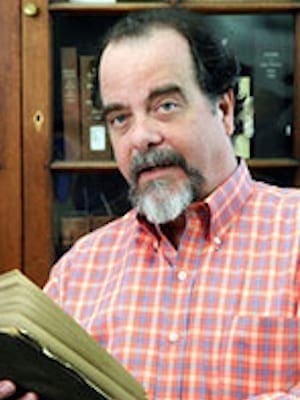Just over 30 years ago John Howard Yoder published his stinging critique of the image of Jesus that had become widely accepted in the academy and the church. The Politics of Jesus is as relevant today as it was in 1972.
Scholarship in the last century regularly attempted to frame the Jesus story either in romantic terms, capturing an idealized teacher-reformer who was uninterested in political action, or to embed the history of Jesus in a culture and time that could not be translated into the contemporary world.
At the same time the academy was encasing Jesus in theory and history, the church was working hard to mute the radicalness of Jesus of the Gospels, transforming him into an exemplary citizen or a role model for those faced with moral dilemmas.
Yoder would have none of it. With remarkable clarity Yoder demonstrated six ways that academics–mostly Christian ethicists–removed Jesus from the normative center of Christian living. The six ways include (1) casting Jesus as an “interim” teacher of the Kingdom of God that did not take seriously the political structures of Rome, (2) describing Jesus as a “rural figure” with a homespun appeal to the peasants of his day, (3) seeing Jesus as an impotent teacher of oppressed people who did not imagine that they could change their world, (4) understanding Jesus as a spiritual teacher unconcerned with social and political concerns, (5) thinking of Jesus as a sharply focused theologian who asked people to think more about the one sovereign God than multiple human values, and (6) perceiving that the point of the Jesus story is what he did–effect salvation for sinful humanity–rather than engage who he was.
In like manner Yoder challenged popular piety–perhaps best characterized by the work of Charles Sheldon’s In His Steps (readers will recognize Sheldon as the source for the wildly popular WWJD movement in recent years)–as an attempt to shift the focus away from the Jesus of history to a more easily attainable “do the right thing” model shaped by contemporary culture. Popular Christianity, Yoder believed, does not take seriously the radical person of Jesus found in the Gospels and reflected in the rest of the New Testament.
Against the popular trends in the church and academy Yoder held out the possibility of an authentic “messianic ethic” rooted in the story of Jesus. Jesus, Yoder contends, was thoroughly political, and his politics were the politics of pacifism and radical hope in the power of God. Reflecting upon Peter’s attempt to defend Jesus at the time of his arrest in Gethsemane, Yoder wrote: [Jesus’] “disavowal of Peter’s well-intentioned effort to defend him cannot be taken out of the realm of ethics by the explanation that he had to get himself immolated in order to satisfy the requirements of some metaphysically motivated doctrine of atonement.” Instead Yoder claims that Jesus’ response “was because God’s will for God’s man in this world is that he should renounce legitimate defense.”
Who was John Howard Yoder? He was born in 1927 into a Mennonite family in Ohio. Steeped in the Anabaptist traditions, Yoder learned a life of service to the church and to the world. Stanley Hauerwas–one of Yoder’s best-known devotees–tells the story of Yoder greeting new graduate students at Notre Dame. In typical self-effacing manner Yoder told the new students that he was a theologian “only because he was no good at his father’s greenhouse business in Ohio.”
Yoder died unexpectedly in his office at Notre Dame University on Dec. 30, 1997, the day after his 70th birthday. At the time of his death he quietly had become the 20th century’s most significant Mennonite theologian. In a century stamped by violence and war, Yoder steadfastly extolled nonviolence and pacifism as the clear center of the gospel.
Near the end of his best-known work, The Politics of Jesus, Yoder engaged the words of John of Patmos: “John is…saying, not as an inscrutable paradox but as a meaningful affirmation, that the cross and not the sword, suffering and not brute power determines the meaning of history. The key to the obedience of God’s people is not their effectiveness but their patience.”
Pacifism and patience. If the cross of Jesus and the empty tomb made possible by the power of God mean anything, they mean that the violence and war that have dominated much of the history of humanity will not have the final word. The cross of Jesus announces peace and a life of peace. The empty tomb announces the prime reason for God’s people to be patient as God works in the world to effect divine purpose.
John Howard Yoder lived peacefully and taught peace to all who would listen. With equal passion he encouraged patience as the best way to live in the presence of grace.
Richard Wilson is professor of theology and chair of the Roberts Department of Christianity at Mercer University in Macon, Ga.

